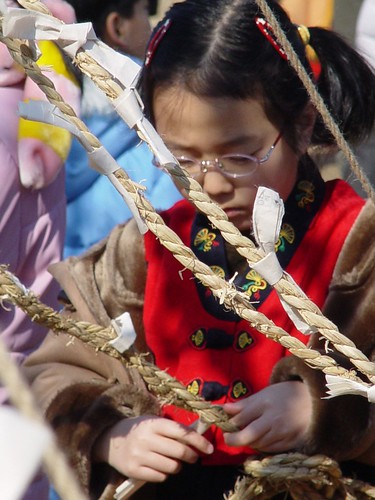Korean Culture
Korean culture is very interesting and full of wonderful traditions. It is a magical place where you find both perfect peace and harmony, but unfortunately wars and tragedies as well. Korean culture rarely falls short of amazing. Use the table below to quickly jump to the section you are interested in


Holidays
Korean New Years
There are actually two Korean New Years. This is because Koreans go by two calenders; one being the same people use in the West, and the other being the lunar calender.
The Korean New Years based on the Western calender is similar to our New Years in the United States. It is a big national holiday in Korea as well, and occurs on January 1st just like it does here.

During this holiday, many relatives get together to share time together and talk. In Korea, there are some old traditions that some people will still follow. One is to visit the oldest member of the family and bow toward them to show respect and to wish them a long life (this would occur on New Years Eve). The following day on January 1st people will pay respect to ancestors by offering food and wine.
This ceremony is called Jaesa. At the beginning of the ceremony, the names of the ancestors are pinned to a board. The oldest family members bows and offers the wine to the ancestors who have passed away. Then, the names are burned. Later in the day, relatives talk about old times and eat food. The traditional food usually eaten on New Years Day is Duk Gook, a type of soup. Kimchi is always present.

The other New Years Day is the Lunar New Years. It is usually around February. People wear the traditional clothes called Hanbok. It also is a day relatives may get together. People will exchange gifts, and the children will definitely be happy because they are usually given money on Lunar New Years. Sometimes the Lunar New Years and the Solar New Years are pretty common and involve similar traditions.
The main idea behind it all is to wish everyone a happy new year, good luck in the new year, same as everywhere else in the world, as well as pay respect to those who have passed away.
If you plan on visiting Korea during either of these times, book ahead!





0 Response to "Korean Culture"
Post a Comment